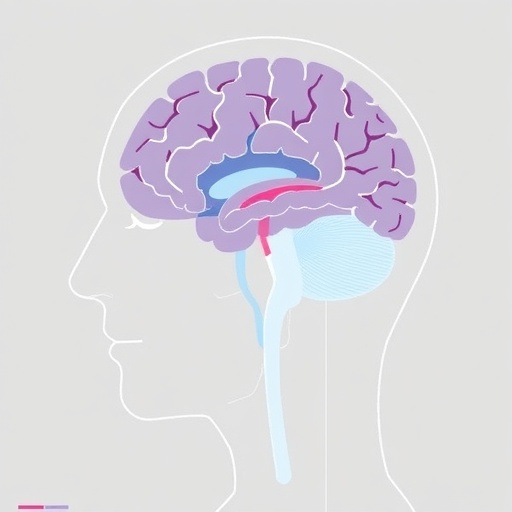In an unprecedented large-scale study spearheaded by Monash University, researchers have unveiled groundbreaking insights into the relationship between menopause and the progression of disability in women diagnosed with multiple sclerosis (MS). This comprehensive research definitively indicates that menopause, despite its significant hormonal changes, does not increase the risk of disability accumulation in women living with relapse-onset MS. This pivotal finding challenges previous smaller studies that yielded contradictory results and brings new clarity to the complex interplay between reproductive aging and neurodegenerative disease.
Multiple sclerosis is a chronic autoimmune disorder characterized by inflammation, demyelination, and subsequent neurodegeneration within the central nervous system. Affecting the immune and nervous systems, MS disproportionately impacts women, with incidence rates approximately three times higher than in men. In Australia alone, about 1 in 800 individuals live with MS, reflecting a substantial public health concern. The disease trajectory varies widely; however, disability progression remains a central concern, especially as patients age.
The intricacies that framed this study arise from the physiological changes women undergo during menopause. At midlife, typically around age 50, women experience a drastic reduction in sex hormones such as estrogen and progesterone. These hormones have been hypothesized to exert neuroprotective effects, potentially modulating MS disease activity. Previous smaller-scale research attempted to delineate the influence of menopause on MS progression but were limited by sample size and heterogeneity, producing inconsistent conclusions regarding whether menopause exacerbates disability.
Associate Professor Vilija Jokubaitis, Deputy Head of Monash University’s School of Translational Medicine Department of Neuroscience, elucidated the rationale behind the investigation. Observational data have noted a point of increased disability progression in MS coinciding with the average age of menopause. Thus, a critical scientific question emerged: does the hormonal milieu shift intrinsic to menopause directly influence the worsening of MS-related disability, or are other aging mechanisms at play? Addressing this required extensive and nuanced data analysis.
Employing data from the MSBase Registry—the largest international clinical outcomes database for MS patients—the research team accessed records for over 120,000 individuals globally, with a focused cohort of 987 Australian women diagnosed with MS. Out of these, 404 participants had undergone menopause. This observational study stands out both in scale and longitudinal follow-up duration, averaging over 14 years per participant, enabling sophisticated temporal assessments of disability trajectories in correlation with menopausal status.
The methodology involved rigorous application of validated disability scoring systems, taking into account confounding factors such as disease-modifying therapies, age-related somatic comorbidities, and lifestyle variables. The researchers employed advanced statistical models to disentangle the potential effects of reproductive aging from general aging processes. Their analyses robustly demonstrated that menopause itself was not independently associated with accelerated disability progression, suggesting that the physiological aging mechanisms unrelated to hormonal decline drive the observed increase in disability measures at midlife.
Dr. Francesca Bridge, the study’s first author and a practicing neurologist specializing in MS, underscored the clinical implications of these findings. “For women navigating both the challenges of MS and the menopausal transition, this study offers critical reassurance,” she stated. Healthcare providers can now better counsel patients, alleviating concerns that menopause might worsen neurological outcomes. This shifts the clinical focus toward managing menopausal symptoms and other modifiable contributors rather than attributing increased disability solely to hormonal changes.
The menopausal period is marked by multiple symptoms such as vasomotor instability (commonly hot flushes), cognitive challenges including memory impairment, mood fluctuations, and urinary dysfunction. Many of these symptoms overlap with existing MS manifestations, complicating management strategies. The elucidation that menopause does not exacerbate MS-related disability enables a more targeted approach to symptom control, emphasizing quality of life improvements through both pharmacological and non-pharmacological interventions.
Comprehensive management models now advocate for holistic approaches addressing lifestyle factors including structured exercise programs, nutritional optimization, and psychosocial support, alongside consideration for menopausal hormone therapy (MHT) where appropriate. These strategies aim to mitigate menopausal symptoms without being overshadowed by fears of accelerating MS disease progression, thus empowering women to maintain functional independence and wellbeing.
The study’s design reflects a mature integration of clinical neurology, epidemiology, and endocrinology. It highlights the importance of large databases like the MSBase Registry, which facilitate cross-institutional collaboration and enable the high-resolution examination of disease courses over extended time frames. Such resources are indispensable for unraveling complex age-related diseases that intersect with reproductive health factors.
Funding support from the National Health and Medical Research Council was instrumental in enabling the data collection and supplementary surveys, which broadened the scope of women’s health considerations in MS research. The collaborative efforts of neuroimmunology centers across Australia underscore a national commitment to advancing understanding in this multifaceted domain, with international studies poised to extend these findings globally.
This research not only refines the clinical narrative surrounding menopause and MS but also opens avenues for further exploration into how other aspects of aging influence autoimmune neurodegenerative diseases. Addressing these dimensions is vital to evolving personalized medicine approaches, where treatment and monitoring protocols are tailored to individual life stages and biological contexts.
In sum, this landmark study dispels the notion that menopause accelerates disability accumulation in women with MS, thereby resolving a longstanding clinical ambiguity. By delineating reproductive aging from somatic aging influences, it charts a clearer path for clinicians and patients alike, emphasizing that the midlife disability surge seen in MS should be understood through the lens of broader age-associated physiological changes rather than hormonal decline alone.
Subject of Research: People
Article Title: Menopause Impact on Multiple Sclerosis Disability Progression
News Publication Date: 29-Sep-2025
Web References:
https://jamanetwork.com/journals/jamaneurology/fullarticle/10.1001/jamaneurol.2025.3538
Keywords: Diseases and disorders, Medical specialties




